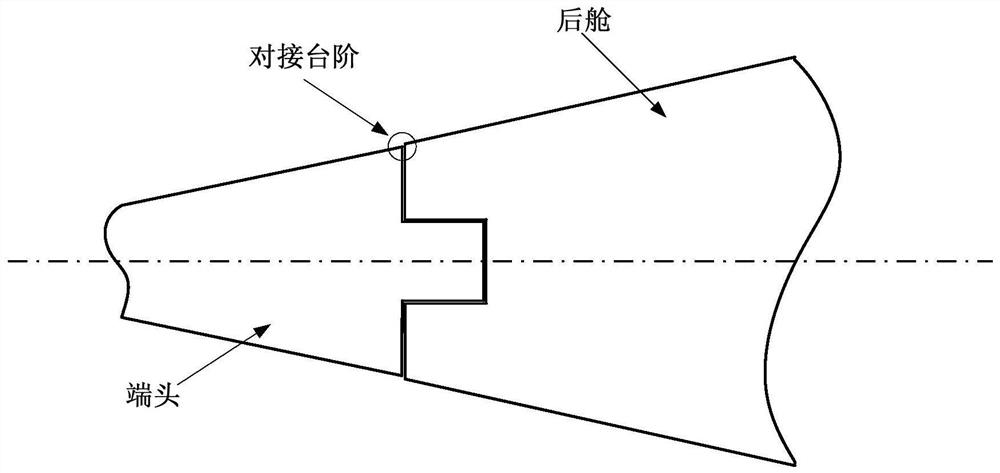A Method for Controlling the Scale of Aircraft Surface Defects with Reduced Effects on Flow Transition
A control method and aircraft technology, applied to aircraft, instruments, motor vehicles, etc., can solve the problems of increasing the possibility of reliable work of the thermal protection system, the difficulty of reasonable control of the scale, and the defect scale not meeting the constraint range, etc., to achieve The effect of reducing the actual defect scale, avoiding abnormal increase, and improving work reliability
- Summary
- Abstract
- Description
- Claims
- Application Information
AI Technical Summary
Problems solved by technology
Method used
Image
Examples
Embodiment
[0044] The specific implementation of the present invention is described by taking the control of the height of the docking step between two cabin sections of an aircraft as an example. Such as figure 2 As shown in , a docking step is formed between the two compartments of the terminal and the rear compartment.
[0045] Such as image 3 As shown, the height of the defined step should be processed as h 0, the actual step height during the flight of the aircraft is h; due to the difference in the structure of the terminal and the rear cabin, the terminal is solid, and the materials of the two are also different. The difference in the thermal response of the two during the flight will lead to The amount of deformation is also different. The difference in the amount of thermal deformation of the two cabins will produce an additional step. The height of the extra step is defined as h', and the height of the step when the rear cabin shell is higher than the end is defined as a po...
PUM
 Login to View More
Login to View More Abstract
Description
Claims
Application Information
 Login to View More
Login to View More - R&D
- Intellectual Property
- Life Sciences
- Materials
- Tech Scout
- Unparalleled Data Quality
- Higher Quality Content
- 60% Fewer Hallucinations
Browse by: Latest US Patents, China's latest patents, Technical Efficacy Thesaurus, Application Domain, Technology Topic, Popular Technical Reports.
© 2025 PatSnap. All rights reserved.Legal|Privacy policy|Modern Slavery Act Transparency Statement|Sitemap|About US| Contact US: help@patsnap.com



